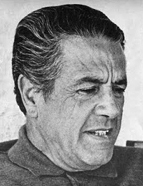

Dias established a connection between the characterisations of the Portuguese national character, his community studies, and his conception of Portuguese overseas expansion. His interest in material culture was focused on traditional dimensions which, like social organisation or ethos, were thought to be on the verge of disappearance. His research in Portugal was concentrated in the n orth of the country, and it was primarily in this region that he sought the basic elements of national identity (João Leal, Antropologia em Portugal..., pp. 149-166). Interested in the ethno-genealogy of the Portuguese, he traced it back to the castro peoples, linking them to the villages he studied. He identified signs of an enduring—if not timeless—essence of the Portuguese people in their institutions and present-day attitudes.
Although he expressed reservations about the possibility of studying the Portuguese "national character" in great detail, arguing that he was not in possession of the basic studies for such an endeavour, he still advanced some representations. In short, it may be said that these representations point to a historically based interpretation of Portuguese society, where the relationship of the Portuguese people with the sea is enhanced, along with the fusion of ethnic heritages from Northern Europe and other regions, including Africa. He emphasised the importance of the patriarchal and communal organisation —generalising that which he defined as a characteristic of the n orth —which, he argued, even allowed for the integration of enslaved servants into the family. The Portuguese, as Catholics, were distinguished from the Protestant colonisers, for their expansion was not driven by the ethics of the latter, tied to the development of capitalism. While utilitarian and lucrative motives were not absent from the Portuguese expansion, they were secondary to the religious motivations. Moreover, the Portuguese were not racist; they recognised the equality of humankind and had a specific mission in human history: to bring various populations of the world into ecumenical contact and to spread a belief that was presented as being superior—Christianity. As can be seen, the author conceived Portuguese colonisation as a fundamental part of the national character (José Manuel Sobral, O Outro aqui tão Próximo..., pp. 491-497).
